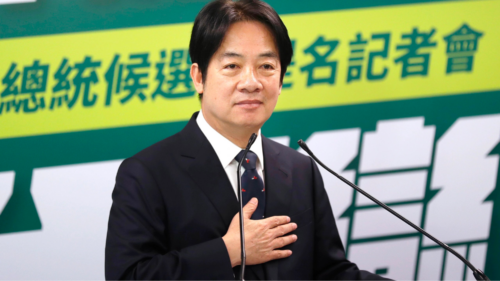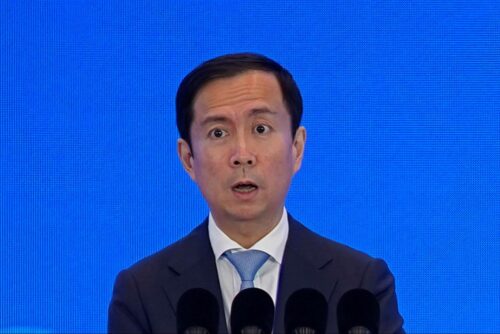Alibaba sexual assault case finally ends in conviction
After a whirlwind 10 months, a former Alibaba employee has won a high-profile sexual assault case against a former manager, one of the few instances of accountability being served for workplace sexual misconduct.

In the summer of 2021, a young employee of ecommerce and entertainment juggernaut Alibaba, the largest Chinese company listed in the U.S., came forward with allegations that her manager and a company client sexually assaulted her after an alcohol-soaked business meal. More than 10 months later, a criminal conviction has finally come through.
In a decision handed down on Wednesday, a court in Jinan, the capital of eastern China’s Shandong province, sentenced Zhāng Guó 张国, who was negotiating a deal with Alibaba on behalf of a supermarket chain last year, to 18 months in prison on a charge of “forcible indecency.” Having been in custody for nearly a year, Zhang has about eight months left to serve on his sentence.
According to a court document distributed to news outlets, an investigation found evidence of Zhang “taking advantage of” the female employee’s intoxication and “violating her will” multiple times in their interactions. On the night of the meal, Zhang molested her in a private dining room and near the front desk of the restaurant, the court said. The next morning, he went to her hotel room and assaulted her again.
So far, Alibaba hasn’t publicly commented on the ruling. Meanwhile, Zhang’s wife insisted that her husband was innocent and said he would appeal.
For the victim, who has been referred to by her surname, Zhou, in media reports., Zhang’s conviction was a bittersweet moment in the midst of a tough journey. Her story first came to light last year when she detailed her claims in an 11-page essay published on Alibaba’s internal website, alleging that Zhang and a senior colleague of hers, identified in news reports by his surname, Wang, plied her with drinks and sexually assaulted her afterwards. Zhou also directed much of her anger at Alibaba, saying that she had reported the incident to higher-ups in her department, only to be ignored and told that she was “unfit” for her job.
As her essay, along with photos and videos of her staging a protest at a cafeteria at Alibaba’s headquarters, made their way to the wider internet, Zhou’s account quickly went viral and ignited a firestorm of public anger. Critics blasted Alibaba for failing to properly handle employee complaints of sexual assault and fostering a toxic company culture where women felt obliged to drink on the job and appear at business gatherings as eye candy.
Days after Zhou’s accusations made national headlines, the tech conglomerate, which has more than 250,000 full-time employees, fired Wang and pledged to set up an anti-sexual harassment policy. At the time, the heightened media attention on the case and heated debates about sexual misconduct in the workplace led many people to believe that the accused perpetrators would face legal consequences for their actions soon, but what followed was a whirlwind of events that disappointed Zhou and her supporters.
In September, prosecutors in Jinan decided to drop a criminal case against Wang because they found that his “forcible indecency” wasn’t grave enough to merit criminal charges or further investigation. Three months later, Alibaba fired Zhou for spreading false information and “triggering strong social concern” that negatively impacted its reputation.
Speaking to Fengmian News, after Wednesday’s ruling, Zhou said she was “at a loss for words” to describe her feelings after waiting “for so long” for the result. But despite the victory in the court of law, she said she still felt “wronged” in the court of public opinion.
On Weibo, where news of the ruling was trending yesterday, reactions were divided. While many applauded the sentencing and said justice was served, others insisted on pinning the blame on Zhou, saying that it was her fault to be too drunk to give consent. This victim-blaming rhetoric was something that Zhou had to deal with from the outset. Ever since she made her claims public, many observers have compared her to the mythical image of a perfect victim — someone who doesn’t drink and always stays vigilant — and found that she did not live up to that impossible standard.
As a result of China’s #MeToo movement, more cases of workplace sexual misconduct have come to the forefront, forcing companies to reckon with their corporate culture and take accountability for issues they have long swept under the rug. Despite making limited headway in granting legal remedies to victims, #MeToo activism in China has also succeeded in raising public awareness about sexual violence, and to some degree changing the way people view consent and power dynamics in relationships.






